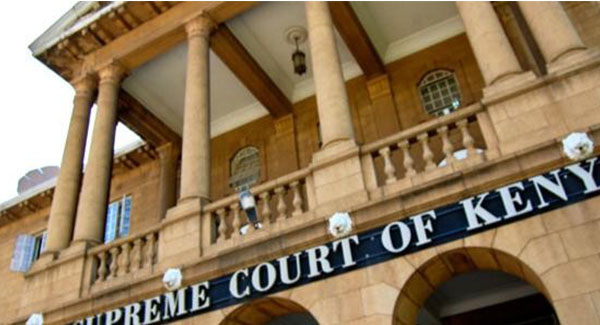NGEC Defends Governor Kawira Mwangaza, Calls Impeachment Proceedings Discriminatory
The Commission (NGEC) has strongly opposed the impeachment of Meru Governor Kawira Mwangaza, terming the process unconstitutional and discriminatory. In a submission filed at the High Court as the 7th Interested Party in Petition No. E429 of 2024, the Commission argues that the impeachment proceedings violated Mwangaza’s fundamental rights, particularly her right to equal protection under the law and freedom from discrimination.
The case, currently before the Constitutional and Human Rights Division of the High Court in Nairobi, challenges the Senate’s decision to uphold the Meru County Assembly’s resolution to remove Governor Mwangaza from office. Through Advocate Desire Njamwea the Commission asserts that the impeachment was orchestrated not on legal grounds but as a systematic effort to undermine Mwangaza due to her gender and independent political standing.
The Commission contends that the impeachment process violated Articles 27, 38, 47, and 50 of the Constitution and argues that the proceedings lacked fairness and procedural integrity, arguing that the impeachment process at the County Assembly and at the Senate were conducted in breach of the law and therefore unlawful.
“The Senate disregarded legal conservatory orders barring the County Assembly from proceeding with impeachment, effectively denying the Governor the protection of the law that she had already secured,” NGEC’s submission states. The Commission also points out that the same set of charges had been previously dismissed, making the impeachment a case of double jeopardy, which contravenes Article 50(2)(o) of the Constitution.
Public participation, a key tenet of democratic governance, was also allegedly compromised in the impeachment process. NGEC argues that the County Assembly failed to conduct substantive and meaningful public consultations before instituting the impeachment motion.
“The public was not adequately informed of the specific grounds of impeachment. Instead, it became an open forum for airing general grievances against the Governor without proper analysis,” the submission states.
The Commission further argued that the public participation disregarded the aspect of the secrecy of the ballot through which Governor Mwangaza was elected.
NGEC cites Supreme Court precedent affirming that public participation must be “real and not illusory,” emphasizing that mere attendance at meetings does not constitute meaningful engagement.
In its strongest argument, NGEC insists that the impeachment was rooted in gender bias.
It highlights that Governor Mwangaza, the only female governor elected as an independent candidate in a predominantly patriarchal society, has faced relentless political hostility.
The Commission points to cultural and political resistance against Mwangaza’s leadership, citing derogatory remarks made by male political figures and traditional leaders. During an October 14, 2023 meeting of the Njuri Ncheke, a powerful Meru council of elders, Mwangaza was likened to a "female male circumciser" rejected by the community— language NGEC describes as both degrading and emblematic of the patriarchal structures working against her.
Further, NGEC highlights inflammatory remarks by politicians inciting gender-based violence against Mwangaza. A notable example is a recorded speech by Hon. Mpuru Aburi, who used crude language to demean the Governor, reinforcing the argument that the impeachment was motivated by gender discrimination rather than legal merit.
Given the blatant violations of constitutional rights, NGEC has urged the High Court to declare the impeachment null and void. The Commission seeks orders preventing further impeachment attempts on similar grounds and a permanent injunction against profiling Mwangaza based on her gender.
“This impeachment is not just about Governor Mwangaza— it is about upholding the rule of law and ensuring that women leaders are not systematically targeted and removed through unconstitutional means,” NGEC states.
As the legal battle unfolds, the case is expected to set a crucial precedent for gender equality in political leadership in Kenya. The High Court’s judgement which is to be delivered on 14th March 2025 will determine whether Mwangaza’s impeachment was a legitimate exercise of legislative oversight or a discriminatory political maneuver aimed at silencing a female leader in a male-dominated political space.
Supreme court of kenya


Comments